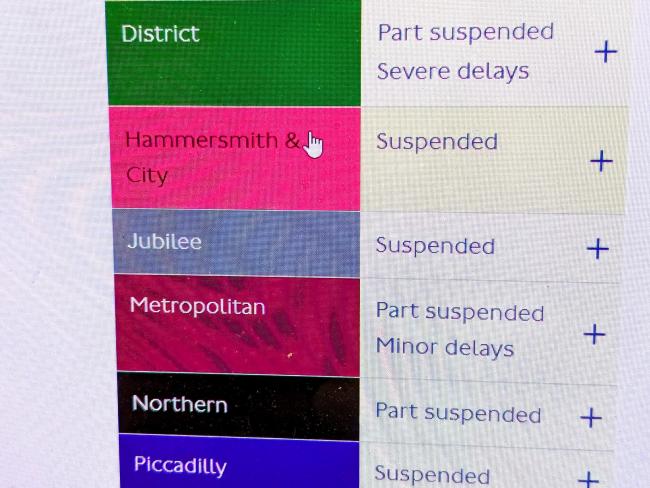19 September 2025

Going nowhere without Tube workers. Photo Workers.
RMT London Underground members are in dispute over their pay and conditions, taking responsibility for making improvements. Strikes in early September seem to have moved Transport for London closer to settlement, but the deal isn’t yet done.
When transport workers take action politicians say those workers and their trade unions are “holding the country to ransom”. What they are admitting is that the true importance of those workers is only evident when they take united action.
“The action showed that London can only function because of Tube workers.”
The seven days of action on the Tube up to Friday 12 September showed that London can only function because of those workers. And it is a glimpse of workers’ potential to control their lives for the better by choosing to use their power. No picket lines were needed: the station gates just remained locked.
The issues which leading to the strike have been on the table for some time – pay, fatigue management, extreme shift patterns, and a demand for a reduction in the working week. These were aggravated by the employer failing to honour previous agreements.
Anger and frustration
RMT members voted overwhelmingly for strike action. This happened because of a refusal by management to take these issues seriously. The union said that the management’s dismissive approach had fuelled widespread anger and a distrust amongst the workforce, which restrictive trade union legislation could not hold back.
Londoners and visitors who use the underground network have some insight into the issue of fatigue management raised by RMT. The failure of governments to invest in our transport infrastructure mean that passengers and transport workers experience the difficulties together. Excessive heat an and noise are commonplace. Tube workers want to reduce the impact of both.
Strenuous
RMT general secretary Eddie Dempsey pointed out that Tube workers do a great job to keep the capital moving, while working strenuous shift patterns.
He said, “They are not after a King’s ransom, but fatigue and extreme shift rotations are serious issues impacting on our members health and wellbeing…which have not been adequately addressed for years by LU management.”
Distrust
Dempsey continued, “…an atmosphere of distrust has been created, where our members feel like no one is listening to them.”
Despite this, the union wants to engage the employer with to reach a negotiated settlement. And at the TUC in Brighton on 10 September, Dempsey called on the London Mayor, Sadiq Khan, to talk directly to the union rather than posting criticism on social media.
Organisation
The dispute involves a wide range of workers from drivers to signallers and controllers. RMT have utilised the organisational skills of those members, usually devoted to keeping the system running, to devise a rolling schedule of action.
This involves calling out certain groups of staff on certain days to ensure the number of strike days for each member is reduced, while maximising the strike impact.
